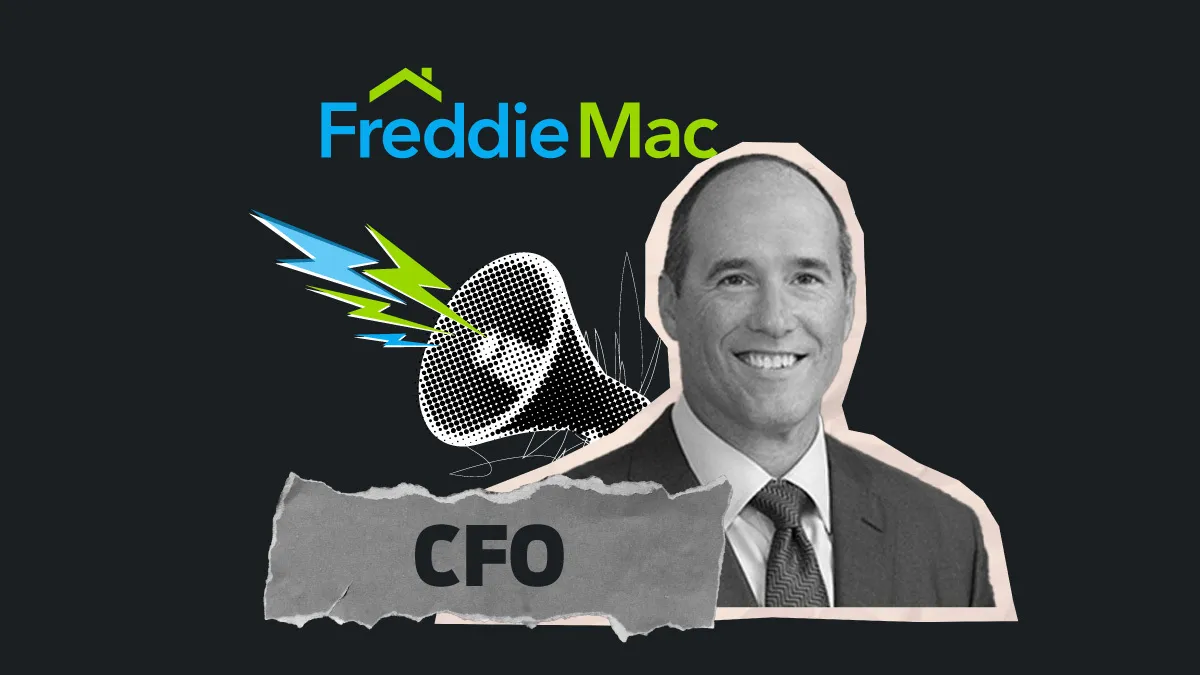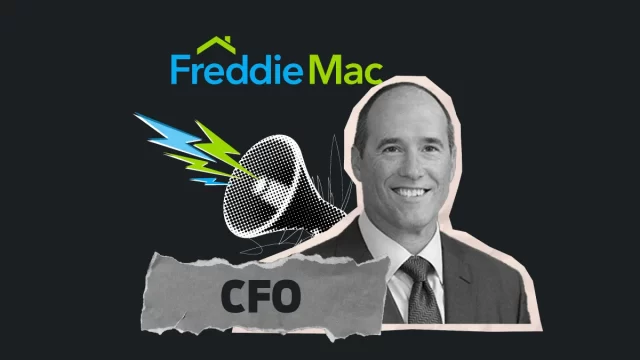
Freddie Mac announced Thursday that it earned net income of $2.8 billion in the first quarter of 2025, a 1% annual increase.
The government-sponsored enterprise (GSE) also posted net revenues of $5.9 billion from January through March, an increase of 2% year over year, which the company said was primarily driven by higher net interest income and partially offset by lower non-interest income.
On the capital front, Freddie Mac‘s net worth increased to $62.4 billion at the end of the quarter, representing a 24% increase from Q1 2024.
“FHFA is working with Freddie Mac to streamline its operations by stripping away unnecessary bureaucracy and eliminating non-essential activities,” Bill Pulte, director of the Federal Housing Finance Agency (FHFA), said in a statement.
“This work has set the stage for cost savings, supporting mortgage affordability while building an even safer, sounder Freddie Mac, one that better serves its mission and the American people.”
Affordable loan programs
In its earnings call on Thursday morning, Freddie Mac chief financial officer Jim Whitlinger said that Freddie’s first-quarter net interest income was $5.1 billion, up $343 million (7%) year over year.
“The increase was primarily driven by continued mortgage portfolio growth in single-family and an increase in the volume of fully guaranteed securitizations in multifamily,” Whitlinger said.
Non-interest income for Q1 2025 was $800 million, down 25% year over year, a figure primarily driven by lower net investment gains in multifamily.
Freddie financed 224,000 mortgages in Q1 2025, with 51% of eligible loans affordable to low- and moderate-income borrowers. Freddie also financed 89,000 rental units, with 92% of eligible units affordable to low- and moderate-income households.
First-time homebuyers represented 52% of new single-family home purchase loans during the three-month period.
Single-family, multifamily details
The company’s provision for credit losses in Q1 2025 was $300 million, which Whitlinger said is “primarily driven by a credit reserve build in single-family attributable to new acquisitions.”
New business activity was $78 billion, up from $62 billion in Q1 2024, as both home purchase and refinance volume increased due to expanded market coverage, higher conforming loan limits and home-price appreciation in recent quarters.
Credit enhancement coverage of the single-family mortgage portfolio increased to 62% as of March 31, 2025, up from 61% one year earlier.
Freddie’s multifamily segment posted net income of $500 million in the first quarter, down 35% year over year. Net revenues totaled $900 million, down 27% annually.
Net interest income for multifamily was $300 million, up 29% year over year, mainly driven by an increase in the volume of fully guaranteed securitizations. Non-interest income was $600 million, down 42% annually.
“It was driven by lower revenues from held-for-sale loan purchases and securitization activities, impacts from interest rate management activities and less favorable fair value changes from prepayment rates,” Whitlinger said.
“In the first quarter, we securitized $16 billion of multifamily loans, $5 billion more than in the prior year quarter. Our multifamily mortgage portfolio increased 5% year over year to $467 billion,” he added.
The CFO went on to note that Freddie’s multifamily delinquency rate at the end of the quarter was 46 basis points, up from 34 bps in March 2024, and up from 40 bps at the end of 2024.
“The increase in the delinquency rate was primarily driven by increased delinquencies in our floating-rate loans, including small-balance loans that are in their floating-rate period.”
Peering into the future
Whitlinger ended the call by referencing the sweeping changes enacted by Pulte at the enterprise.
“We support actions he has taken to drive fraud and waste out of the U.S. housing finance system. We expect the savings associated with FHFA’s new direction to reduce Freddie Mac’s general and administrative expenses in 2025 and beyond,” he said.
“Furthermore, we believe that regulatory changes making it easier for us to responsibly acquire loans will increase our revenue and enable us to provide even greater liquidity to the single-family and multifamily markets.”
Whitlinger added that Freddie’s current home-price forecast assumes an increase of 4.2% over the next 12 months and 2.8% over the subsequent 12 months.
“This is a change from our prior forecast at the end of last quarter, which assumed 2.7% and 3.3% growth over the next 12 and subsequent 12 months, respectively,” he added.
First Time Home Buyer FAQs - Via HousingWire.com







